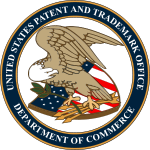[author: Donald Zuhn]
 In a notice published in today's Federal Register, the U.S. Patent and Trademark Office announced that it will be hosting a Cooperative Patent Classification (CPC) External User Day event from 8:30 am to 12:00 pm (EST) on July 10, 2012 (77 Fed. Reg. 37879). During the event, which will be held in the Madison Auditorium on the USPTO's Alexandria campus, the USPTO will provide an overview of the CPC, a new patent classification system being jointly developed by the USPTO and the European Patent Office (EPO). USPTO staff will also provide information concerning external user interaction, accessibility, training and outreach related to the CPC. Those interested in attending the event should e-mail their name and phone member to CPC_Users_Day@uspto.gov.
In a notice published in today's Federal Register, the U.S. Patent and Trademark Office announced that it will be hosting a Cooperative Patent Classification (CPC) External User Day event from 8:30 am to 12:00 pm (EST) on July 10, 2012 (77 Fed. Reg. 37879). During the event, which will be held in the Madison Auditorium on the USPTO's Alexandria campus, the USPTO will provide an overview of the CPC, a new patent classification system being jointly developed by the USPTO and the European Patent Office (EPO). USPTO staff will also provide information concerning external user interaction, accessibility, training and outreach related to the CPC. Those interested in attending the event should e-mail their name and phone member to CPC_Users_Day@uspto.gov.
 The CPC is a detailed classification system that will be based on the International Patent Classification, which is administered by the World Intellectual Property Organization (WIPO), and will also use the European Classification system (ECLA) as a foundation. According to the two offices, the new classification system will incorporate the best classification practices of both the U.S. and European systems. The joint effort to develop a joint patent classification system was first announced in October 2010 (see "USPTO and EPO to Develop Joint Patent Classification System"). Four months after that announcement, the USPTO and EPO provided additional information regarding the foundation of the joint classification system (see "USPTO and EPO Agree to Principles of Joint Patent Classification System"). And one year after their initial announcement, the two offices launched a website providing information on the CPC initiative (see "USPTO and EPO Launch Patent Classification Website"). According to the USPTO, next month's event is the next step in educating and informing external stakeholders about the current development and future implementation plans of the CPC.
The CPC is a detailed classification system that will be based on the International Patent Classification, which is administered by the World Intellectual Property Organization (WIPO), and will also use the European Classification system (ECLA) as a foundation. According to the two offices, the new classification system will incorporate the best classification practices of both the U.S. and European systems. The joint effort to develop a joint patent classification system was first announced in October 2010 (see "USPTO and EPO to Develop Joint Patent Classification System"). Four months after that announcement, the USPTO and EPO provided additional information regarding the foundation of the joint classification system (see "USPTO and EPO Agree to Principles of Joint Patent Classification System"). And one year after their initial announcement, the two offices launched a website providing information on the CPC initiative (see "USPTO and EPO Launch Patent Classification Website"). According to the USPTO, next month's event is the next step in educating and informing external stakeholders about the current development and future implementation plans of the CPC.
Earlier this month, USPTO Director David Kappos posted a list of twelve reasons why the USPTO is moving to the CPC on his blog. Director Kappos also noted that the Office had provided an overview of its CPC efforts to the examining corps in February. As for the twelve reasons for moving to the CPC, the Director indicated that:
1. The CPC, unlike the current U.S. Patent Classification System (USPC), would be current and revised on a regular basis.
2. The CPC would allow for more frequent updating, allowing the offices to adapt to filing trends and incorporate emerging technologies into the scheme.
3. The CPC, unlike the USPC, would be more compatible with the classification schemes used by the EPO, KIPO, JPO, and SIPO, which are all based on the IPC standard.
4. U.S. examiners using the CPC system will have better access to pertinent prior art.
5. By providing more 50,000 additional breakdowns, the CPC will provide more targeted searches yielding more focused results.
6. The CPC will benefit from the incorporation of U.S. documents dating back from 1920, which were classified under the ECLA.
7. U.S. examiners will benefit by only having to classify documents filed first in the U.S.
8. The USPTO and EPO examiners will be able to share and exchange classification and search tools.
9. Examiners and users worldwide will be able to conduct patent document searches by accessing the same document collections.
10. The CPC will allow the USPTO to use work of other intellectual property offices.
11. The USPTO will run both the CPC and USPC in parallel for two years beginning on January 1, 2013 to allow examiners sufficient opportunity to learn and transition to the new scheme.
12. The CPC will eventually be used by more than 45 patent offices in their internal search systems, thus becoming the international standard.